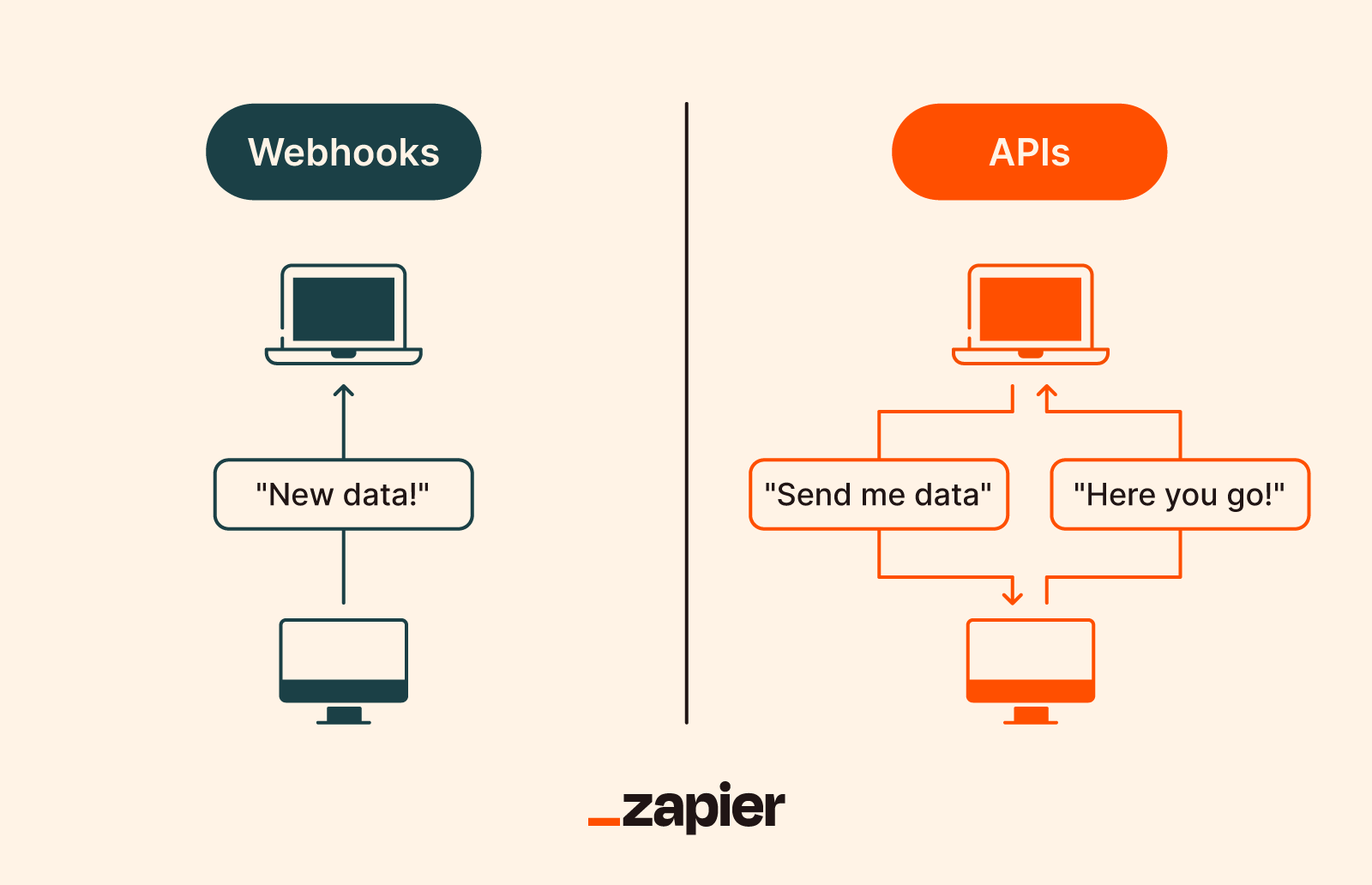While in the admin side of Gainsight CE, you might come across the terms "Webhooks" and "APIs." On a high level, they’re tools that can help you streamline your LMS processes inside and outside the Gainsight CE product.
Keep reading for a breakdown of what they are, how you might use them plus the difference in this image from Zapier!

Webhooks: Automatic Notifications for Real-Time Updates
Webhooks automatically send information to your systems whenever a key event occurs in Gainsight CE.
For example, webhooks can notify your system when:
- A learner activtivates their account in Gainsight CE
- A learner enrolls in, starts, and completes a course.
- A learner registers for an instructor led training (ILT) session.
- A learner enrolls in, starts, or completes a learning path.
Why Use Webhooks? 🤔
Webhooks are useful for keeping your records up-to-date without manually updating them outside of CE. They also ensure that your colleagues or stakeholders who may not have Gainsight CE admin access can see learner activity in a CRM, analytics platform, or other system.
APIs: Your Customization Toolbox
APIs are like a toolbox that lets your systems request information from Gainsight CE whenever they need it. With APIs, you can pull data, manage users, and even automate certain tasks.
For example, you can use APIs to:
- Automatically enroll a group of users into a course based on specific criteria.
- Manage learner enrollments and learner accounts across your systems.
Why Use APIs? 🤔
APIs are great if you need more control or want to customize how you and other systems interact with Gainsight CE. For instance, if you’re looking to automate the enrollment of new customers into relevant onboarding courses as soon as they join, APIs give you the flexibility to set up that flow.
For more information on how to use these tools, you can explore our [Gainsight CE Developer Documentation].
